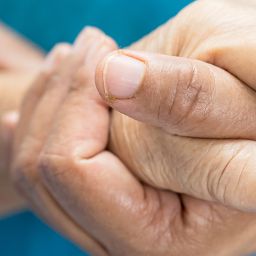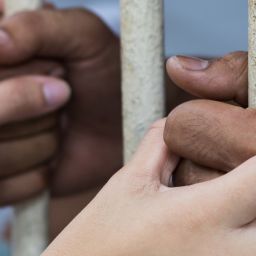Depression and gambling addiction often intertwine, forming a challenging cycle. Individuals experiencing depression face persistent sadness and disinterest, while those struggling with gambling addiction exhibit compulsive behavior despite negative consequences. Seeking therapy, building a support network, practicing healthy coping mechanisms, addressing underlying emotional distress, and setting boundaries with gambling activities are key steps toward breaking free from this harmful cycle. To assist in overcoming these challenges, we will share six effective strategies in this article.
Understanding Depression and Gambling Addiction
Understanding the link between depression and gambling, individuals seek coping strategies. Depression is characterized by persistent sadness; gambling addiction involves an uncontrollable urge to gamble despite the consequences. Below are some key points important to understand in this regard:
- Escape and Coping: Individuals may turn to gambling as a way to escape from their depressive symptoms temporarily.
- Reward System Dysfunction: Both depression and gambling can affect the brain’s reward system, leading to a craving for pleasurable experiences.
- Negative Reinforcement: Gambling may serve as a means of seeking relief from negative emotions associated with depression.
Individuals may turn to gambling as a temporary escape from depressive symptoms. Before delving into strategies, it’s crucial to comprehend the nature of depression and gambling addiction. By addressing underlying psychological issues, individuals can learn healthier ways to manage their emotions and reduce the risk of relapse. In rehab, addressing mental health issues like depression and gambling addiction is essential for effective treatment.
6 Effective Strategies
1. Comprehensive Therapy Approach
Our first strategy involves implementing a holistic therapy approach. This approach treats the individual comprehensively, addressing physical, emotional, and spiritual needs. Individual and group therapy sessions allow the exploration of root causes and the development of coping skills. Additionally, mindfulness exercises aid in managing stress and emotions effectively.
Through individual counseling and group therapy, individuals gain insight into their triggers. They also learn healthier coping mechanisms. Moreover, a comprehensive therapy approach encourages personal growth and resilience. By focusing on the whole person, rehab centers empower individuals to overcome challenges and achieve lasting recovery. In rehab, addressing anxiety is also very crucial. Both individual and group therapy sessions provide support and guidance in managing anxiety effectively. Thus, a comprehensive therapy approach targets the intertwined issues of depression, gambling addiction, and anxiety, promoting holistic healing.
2. Practice Mindfulness and Stress-Relief Techniques
Mindfulness and stress-relief techniques help manage depression and gambling cravings. They calm the mind, alleviate stress, and promote peace. These practices empower individuals in rehab, aiding in addressing mental health issues like anxiety. Incorporating them into daily routines fosters emotional control and resilience, crucial for resisting gambling urges and maintaining stability in rehab. Additionally, they foster a sense of self-awareness and inner balance, facilitating a holistic approach to recovery. Moreover, they encourage healthy coping mechanisms, reducing reliance on addictive behaviors for relief. These techniques create a supportive environment conducive to long-term mental well-being and sobriety.
3. Engage in Healthy Activities and Hobbies
Engaging in healthy activities and hobbies is essential for maintaining a balanced and fulfilling life during rehab. Whether it’s exercising, spending time outdoors, or pursuing creative endeavors, finding activities that bring you joy and fulfillment can help distract you from negative thoughts and cravings. Additionally, staying busy and active can boost your mood, increase your self-esteem, and reduce the risk of relapse. Moreover, connecting with supportive peers who share similar interests can provide a sense of camaraderie and encouragement, fostering a positive environment for recovery. Engaging in structured routines that include both enjoyable activities and therapeutic sessions can further reinforce healthy habits and aid in the rehabilitation process.
4. Adopt Relapse Prevention Techniques
Rehabilitation programs often incorporate relapse prevention techniques to help individuals recognize triggers and develop strategies for managing cravings. These techniques may include creating a relapse prevention plan, identifying high-risk situations, and building a support network. Additionally, learning effective communication skills to express needs and concerns, as well as practicing assertiveness techniques, can empower individuals to navigate potential relapse triggers confidently. Moreover, regularly reassessing and adjusting the relapse prevention plan based on individual progress and changing circumstances is crucial for maintaining long-term sobriety.
5. Set Realistic Goals and Celebrate Progress
Setting realistic goals and celebrating progress is key to maintaining motivation and momentum in your recovery journey. Break down your long-term goals into smaller, achievable milestones, and celebrate each accomplishment along the way. Whether it’s staying gamble-free for a week, completing a therapy session, or reaching a personal milestone, acknowledging your progress can boost your confidence and reinforce your commitment to overcoming depression and gambling cravings.
6. Find Professional Guidance and Support
One of the most crucial steps in overcoming depression and gambling cravings is to seek professional guidance and support. Therapists and counselors can provide you with the tools and techniques needed to address underlying issues and develop coping mechanisms. Additionally, joining support groups or attending therapy sessions can offer valuable insights and encouragement from others who are facing similar struggles.
Seeking Professional Help?
If you or someone you know is struggling with depression and gambling addiction, don’t hesitate to reach out to us at 70×7 Wellness Mission. Our team is here to provide support, guidance, and resources to help you overcome these challenges and embark on a journey towards recovery. Contact us today to take the first step towards a healthier and happier life.
Conclusion
In conclusion, overcoming depression and gambling cravings in rehab requires dedication, perseverance, and the willingness to seek help and support. By implementing these six strategies into your daily life, you can take positive steps towards recovery and create a brighter, healthier future for yourself. Remember, you’re not alone on this journey, and with the right support and determination, you can overcome any obstacle that comes your way.











